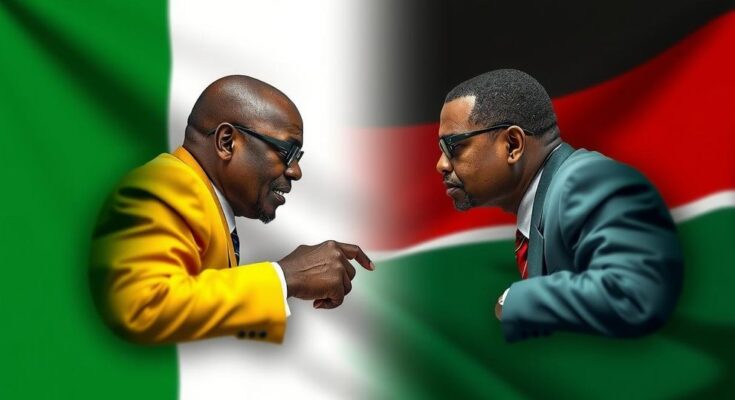Kenya and Uganda will mediate a conflict between Ethiopia and Somalia, aimed at restoring stability in the region. President Ruto stated the importance of Somalia’s security for regional investment. Somalia’s alignment with Egypt and Eritrea has complicated the dispute, following unsuccessful mediation efforts in Ankara, Turkey.
Kenyan President William Ruto announced that he and Ugandan President Yoweri Museveni will collaborate in mediating an escalating dispute between Ethiopia and Somalia, which poses a potential threat to regional stability. This initiative comes amid Somalia’s deepening ties with Egypt and Eritrea, countries that have longstanding tensions with Ethiopia regarding dam constructions on the Nile River. Ruto emphasized that the security of Somalia is crucial for the overall stability of the region, facilitating an environment conducive for business and investment. Previous mediation efforts held in Ankara, Turkey, had failed to yield positive outcomes, indicating the challenges ahead in resolving the conflict.
The dispute between Ethiopia and Somalia arises against a backdrop of historical tensions and geopolitical dynamics in the Horn of Africa. Somaliland, which declared independence from Somalia in 1991, has faced difficulties achieving global recognition despite its relative stability. The conflict has drawn Somalia closer to Egypt, with which it shares grievances against Ethiopia, particularly concerning the latter’s hydro dam construction on the Nile River. These complex interrelations further complicate efforts for resolution, underscoring the importance of the mediation process proposed by Kenya and Uganda.
In conclusion, the mediation initiative by Kenya and Uganda highlights the pressing need to address the Ethiopia-Somalia dispute, which jeopardizes the stability of the Horn of Africa. As regional dynamics shift with Somalia’s alignment towards Egypt and Eritrea, successful mediation could not only enhance security for Somalia but also promote economic opportunities in the entire region. However, the path to resolution remains fraught with challenges as previous attempts have indicated.
Original Source: news.az




